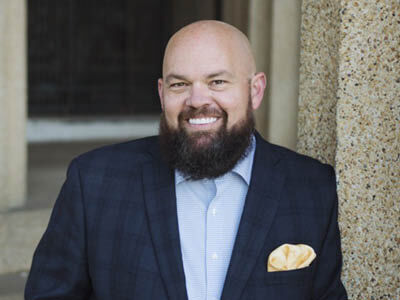Police question 6 suspects over deadly Manchester synagogue attack
News > Religion News

Audio By Carbonatix
5:11 AM on Saturday, October 4
By JILL LAWLESS
LONDON (AP) — Police on Saturday were questioning six people arrested on suspicion of terror offenses after an attack on a synagogue in northwest England that left two men dead and Britain’s Jewish community shocked and grieving.
Jihad Al-Shamie, 35, was shot dead by police on Thursday outside the Heaton Park Congregation Synagogue in Manchester after he rammed a car into pedestrians, attacked them with a knife and tried to force his way into the building.
Congregation members Melvin Cravitz, 66, and Adrian Daulby, 53, died in the attack on Yom Kippur, the holiest day of the Jewish year. Police say Daulby was accidentally shot by an armed officer as he and other congregants barricaded the synagogue to block Al-Shamie from entering. Three other men are hospitalized with serious injuries.
Detectives say Al-Shamie, a British citizen of Syrian origin who lived in Manchester, may have been influenced by “extreme Islamist ideology.” He wore what appeared to be an explosives belt, which was found to be fake.
Police said Al-Shamie was on bail over an alleged rape at the time of the attack but had not been charged.
Three men and three women were arrested in the greater Manchester area on suspicion of the “commission, preparation and instigation of acts of terrorism,” as police work to determine whether the attacker acted alone. A court on Saturday granted police five more days to hold four of the suspects: men aged 30 and 32 and women aged 46 and 61. An 18-year-old woman and a 43-year-old man are also being questioned.
Police have not identified those arrested or disclosed their links to Al-Shamie.
The attack has devastated Britain’s Jewish community and intensified debate about the line between criticism of Israel and antisemitism.
Recorded antisemitic incidents in the U.K. have risen sharply since Hamas’ Oct. 7, 2023, attack on Israel and Israel’s ensuing war against Hamas in Gaza, according to Community Security Trust, a charity that provides advice and protection for British Jews.
Some politicians and religious leaders claimed pro-Palestinian demonstrations, which have been held regularly since the war in Gaza began, had played a role in spreading hatred of Jews. The protests have been overwhelmingly peaceful but some say chants such as “From the river to the sea, Palestine will be free” incite anti-Jewish hatred.
Some also say the U.K.’s recognition of a Palestinian state last month has emboldened antisemitism — a claim the government rejects. Deputy Prime Minister David Lammy was interrupted by boos and shouts of “Shame on you” on Friday as he addressed a vigil for victims of the attack in Manchester.
Israeli Prime Minister Benjamin Netanyahu and his supporters have frequently accused critics of Israel or its conduct of the war of antisemitism. Critics see it as an attempt to stifle even legitimate criticism.
Chief Rabbi Ephraim Mirvis, the head of Orthodox Judaism in Britain, said the attack was the result of “an unrelenting wave of Jew hatred” on the streets and online.
Pro-Palestinian demonstrators were held in Manchester and London on Saturday despite objections from police and politicians. Prime Minister Keir Starmer said organizers should “recognize and respect the grief of British Jews this week” and postpone the protests.
About 100 people gathered in a central Manchester square in heavy rain, waving Palestinian flags and demanding an end to the war in Gaza.
In London, organizers said about 1,000 people demonstrated against the banning of Palestine Action, a direct-action group that has vandalized British military planes and targeted sites with links to the Israeli military. It has been labeled a terrorist organization by the government.
Police carried away a number of people who sat silently in Trafalgar Square holding signs saying “I oppose genocide, I support Palestine Action.” More than 1,500 people have been arrested at similar protests since Palestine Action was proscribed in July, and more than 130 charged with terrorism offenses.
Campaigner Jonathon Porritt said protesters would “demonstrate huge respect and real grief for those affected by the absolute atrocity at Heaton Park.
“But I don’t think that means that we should be asked to give up on our right to stand up for those who are being devastated by an ongoing, real-time genocide in Gaza,” he told the BBC.












